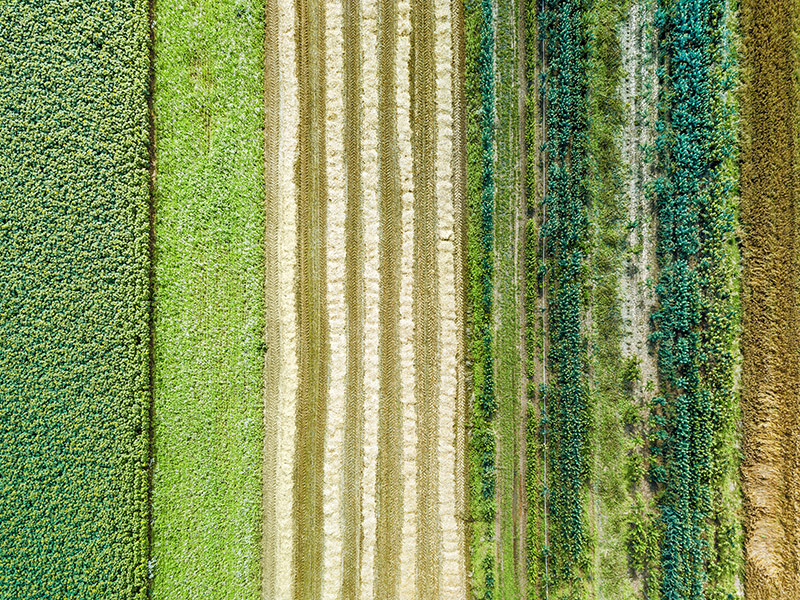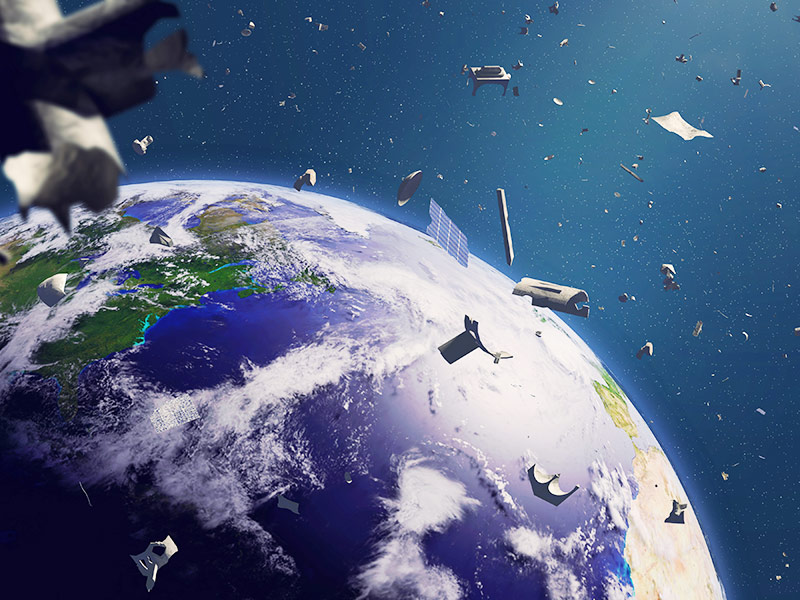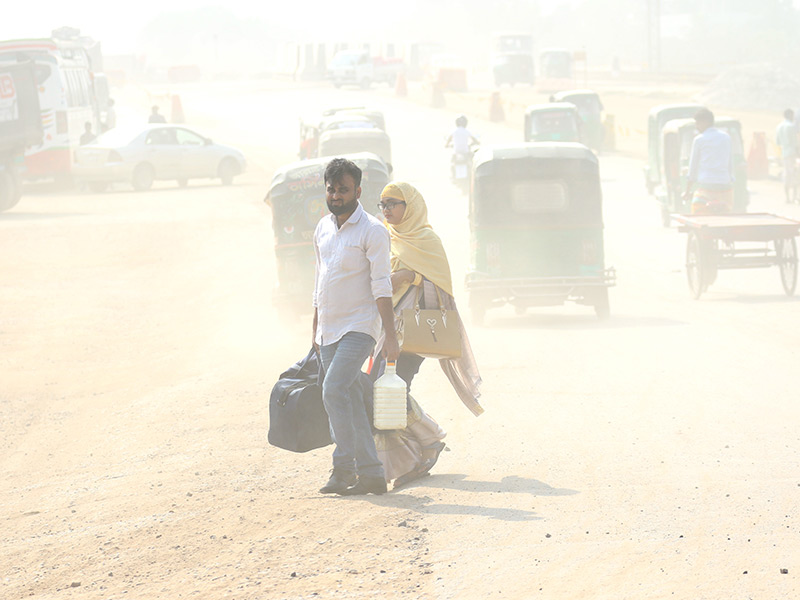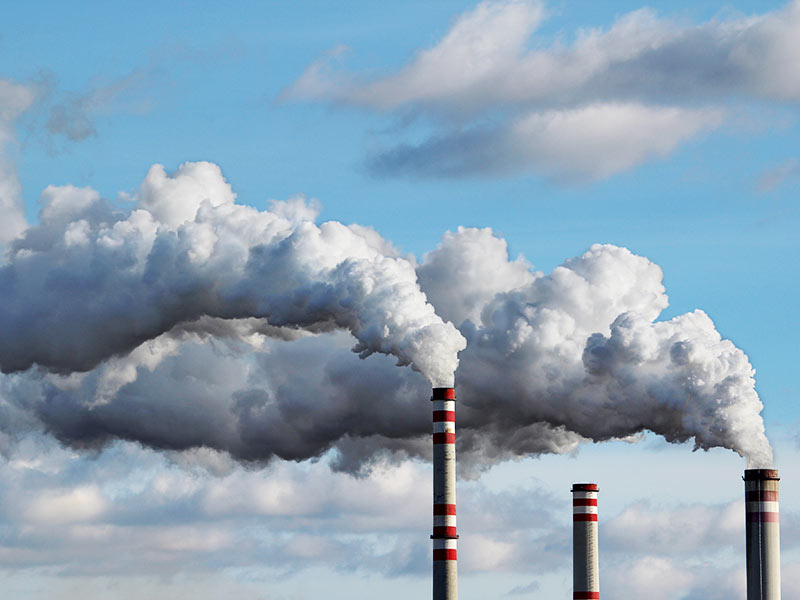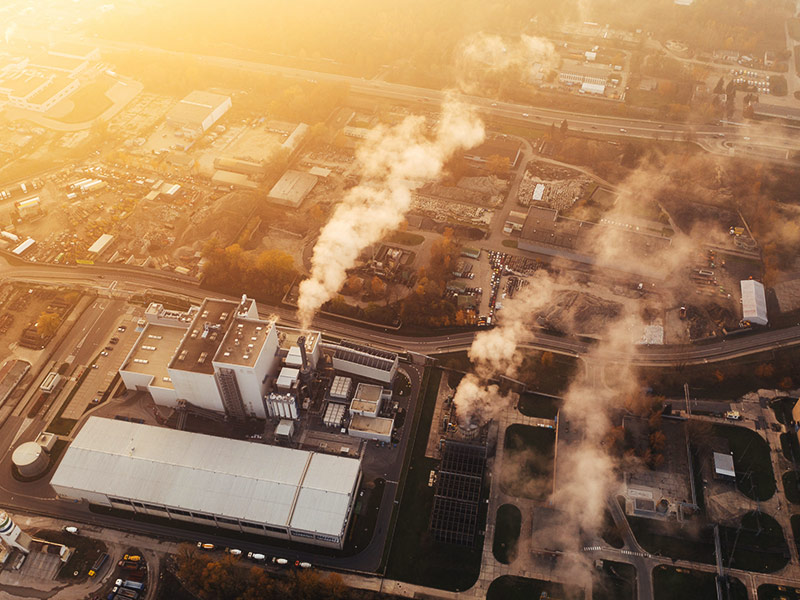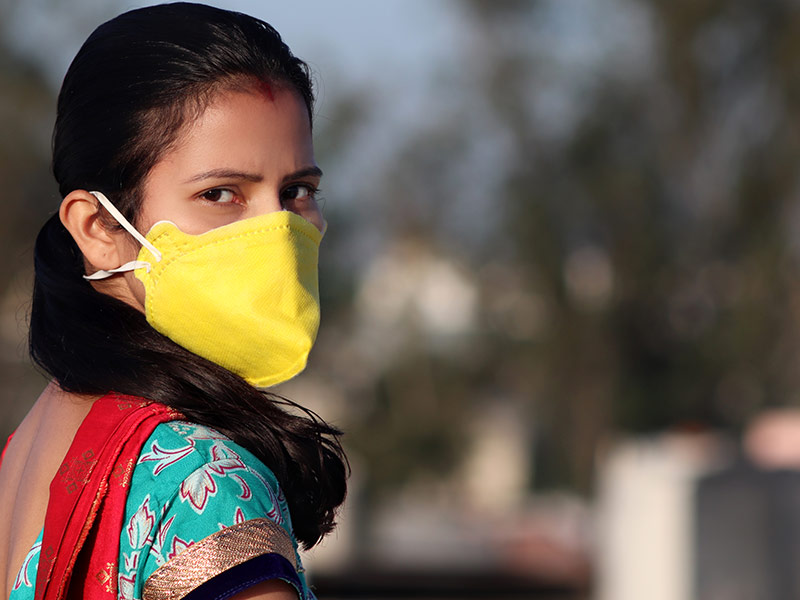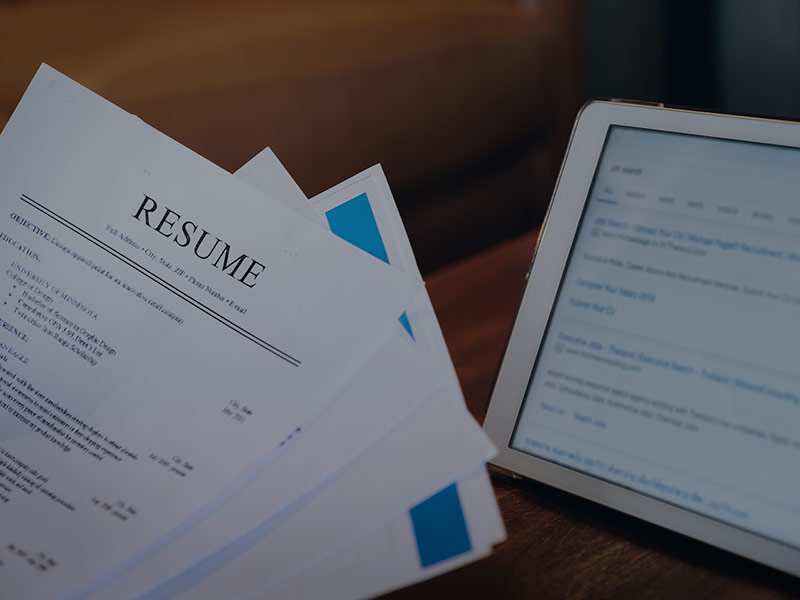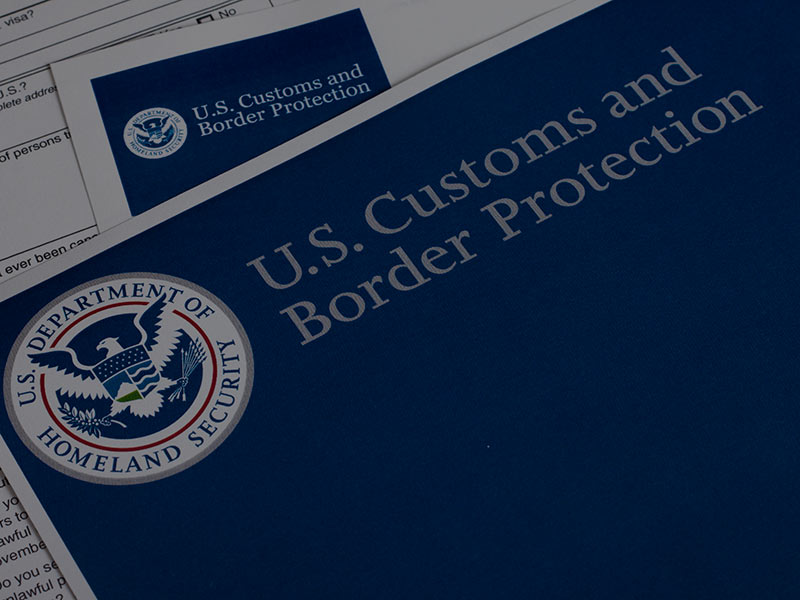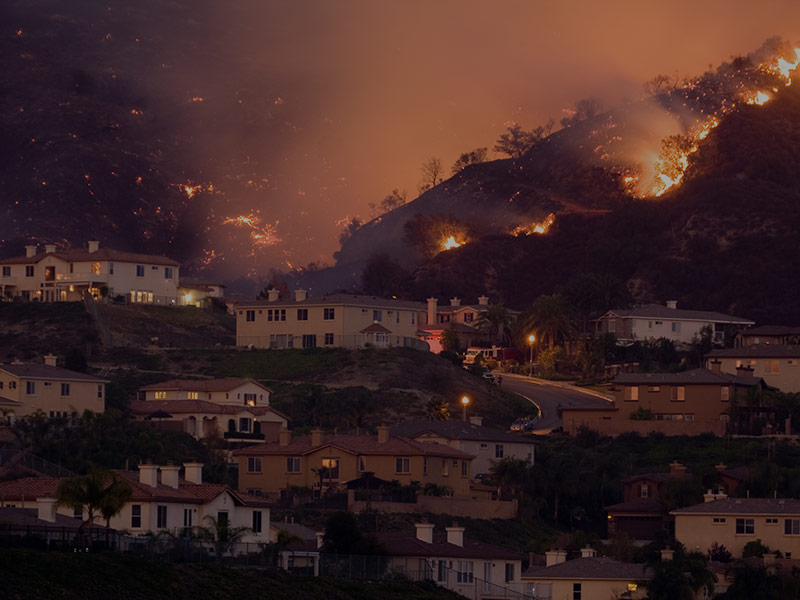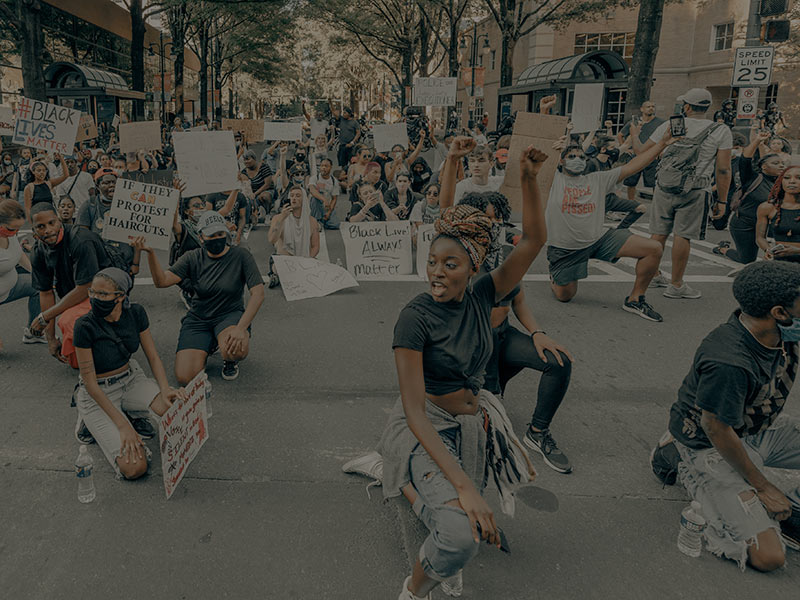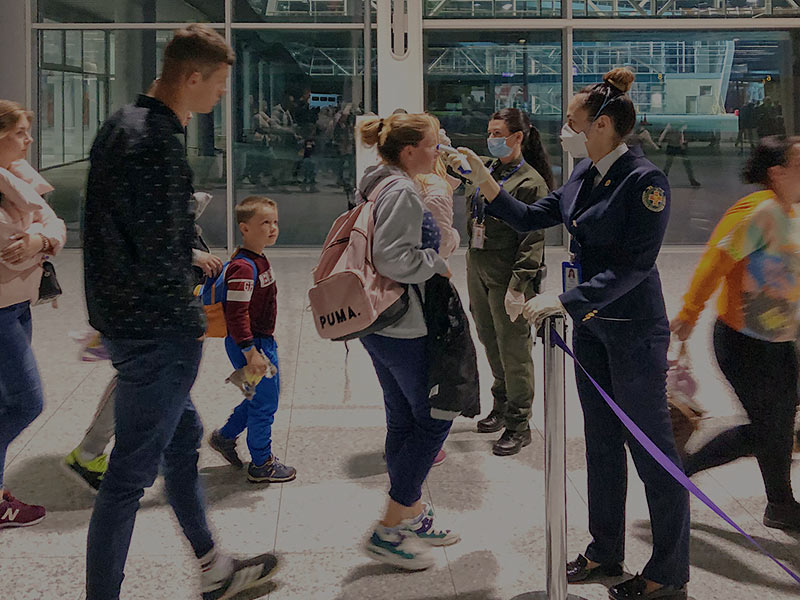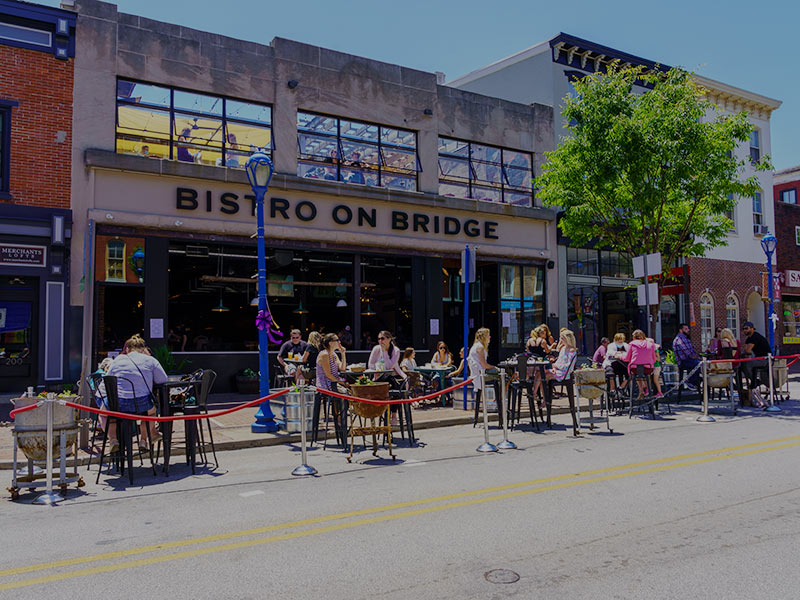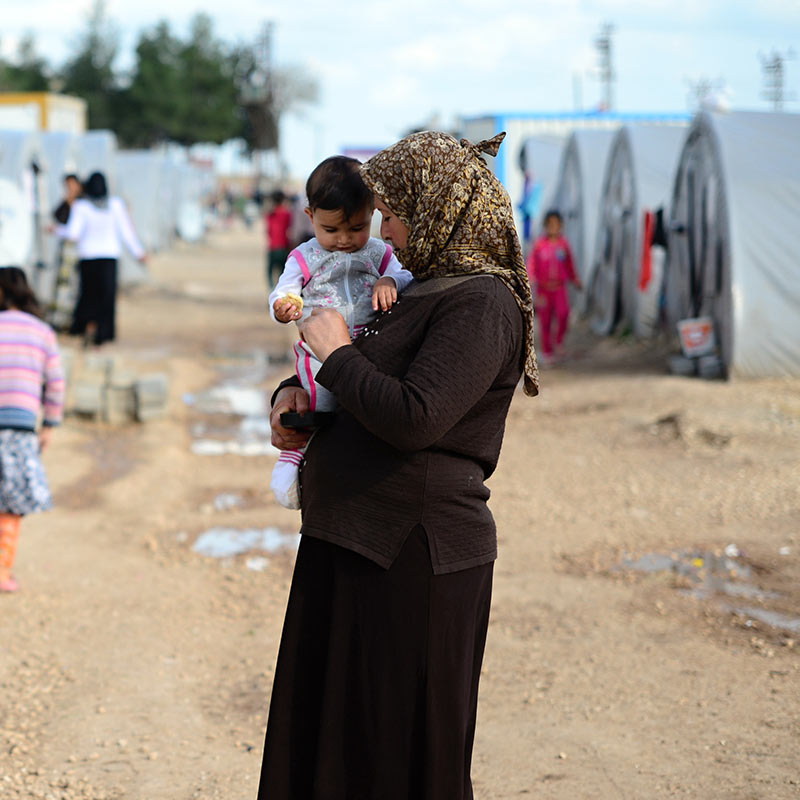
What happens when people have simply nowhere to go? The climate crisis, economic disruption, and political unrest are causing the number of migrants and refugees to swell globally. At the same time, COVID-19 has prompted countries to shut the door to outsiders of all kinds. Against a backdrop of growing nationalism and anti-immigrant sentiments, this threatens to place tens of millions of people in an impossible situation.
What’s New?
Migration is as old as humanity itself, but new and growing pressures threaten to squeeze the unfortunate into ever more tenuous circumstances. Climate change is driving a wave of climate migrants that will become significantly larger in the coming years. According to Oxfam, “climate-fueled disasters were the number one driver of internal displacement over the last decade—forcing an estimated 20 million people a year from their homes.”
Meanwhile, the sudden threat of COVID-19 has led many countries to shut their doors to nearly all visitors, let alone migrants and refugees. This comes amidst a backdrop of growing nationalism and isolationism in the U.S., Europe, and elsewhere. In some places, such as the U.S., COVID-19 safety precautions are being used as a rationale to curtail asylum claims and legal immigration.
These pressures will threaten the human rights of tens of millions of people. In addition, the pandemic is already exacerbating the socioeconomic conditions of migrant workers and refugees and highlighting inequitable access to public health and economic relief measures of non-national groups in different countries. In some places, like Singapore, migrant workers have emerged as especially vulnerable to infection and have faced additional restrictions on movement and travel during the pandemic. Finally, restrictions on migrant labor may impact the ability of many to travel to or within working countries in the case of domestic migrants. This will severely curtail global remittances, a vital source of income in many countries.
Signals of Change
As of July 2020, a total of 219 countries, territories, or areas had issued 72,525 travel restrictions in response to the pandemic.
The Trump administration is considering unprecedented travel restrictions that would empower border agents to deny reentry to U.S. citizens and permanent residents if the border agent “reasonably believes that the individual either may have been exposed to or is infected with the communicable disease.”
The German government has expressed disagreement with a ruling by the United Nations Human Rights Committee, which states that countries may not deport individuals who face "climate change-induced conditions that violate the right to life"
Fast Forward to 2025
I remember some farmers literally watching their crops rot in the ground in 2020 and 2021. The guys with the high-value, labor-intensive crops like asparagus and strawberries—they had it the hardest. That first year, we avoided a full-scale food shortage...
The Fast
Forward
BSR Sustainable Futures Lab
What Might This Mean for Business in the Coming Years?
Government policies to restrict migration, immigration, and asylum will have a significant impact on the labor market while creating human rights challenges that will entail significant reputational risk. Many of these changes may be abrupt, requiring a particularly agile human resources strategy. Sectors that directly depend on foreign-born workers are more vulnerable to disruption than others, but many industries indirectly depend on their work.
For most global companies, these challenges will be particularly severe in one or more areas of their global supply chains, requiring the development of a more resilient global supply chain strategy as well as innovative new “local” collaborations with relevant governments and other partners in regions of particular importance.
Last but not least, businesses will be well served by staking out public policy positions on these issues and will need a strong ethical framework to navigate opportunities and demands in a way that addresses stakeholder concerns and respects internationally agreed-upon human rights principles.
What Is the Role of Sustainability?
As events and political developments lead to abrupt restrictions on migration, businesses will need a strong framework to navigate the changing policy landscape, ensure business continuity, and protect workers deep in their global supply chains. Sustainability teams will need to coordinate closely with human resources and government affairs to make sure that companies’ workforce plans and policy advocacy ensure the well-being of vulnerable workers, reducing disruptions and remaining in line with internationally recognized human rights principles. Companies will also need to balance their legal obligations to provide appropriate assistance to law enforcement with the need to protect the privacy rights of workers, customers, and users.
The World Bank projects that global remittances will decline by roughly 20 percent this year due to the COVID-19 crisis, representing a loss of a crucial financing lifeline for many vulnerable households.
Finally, business must confront the reality that it benefits from the labor of workers who are not covered by any safety net. In addition to posing an existential threat to companies’ bottom line, this is likely to become a growing reputational issue. Initiatives to proactively protect worker well-being and respect the rights of workers in global supply chains will strengthen companies’ market position and reputational standing in a world of growing expectations for good corporate citizenship.
![]()
Previous issue:
The Kids Are Not Alright
![]()
Next issue:
Reimagining Cities

